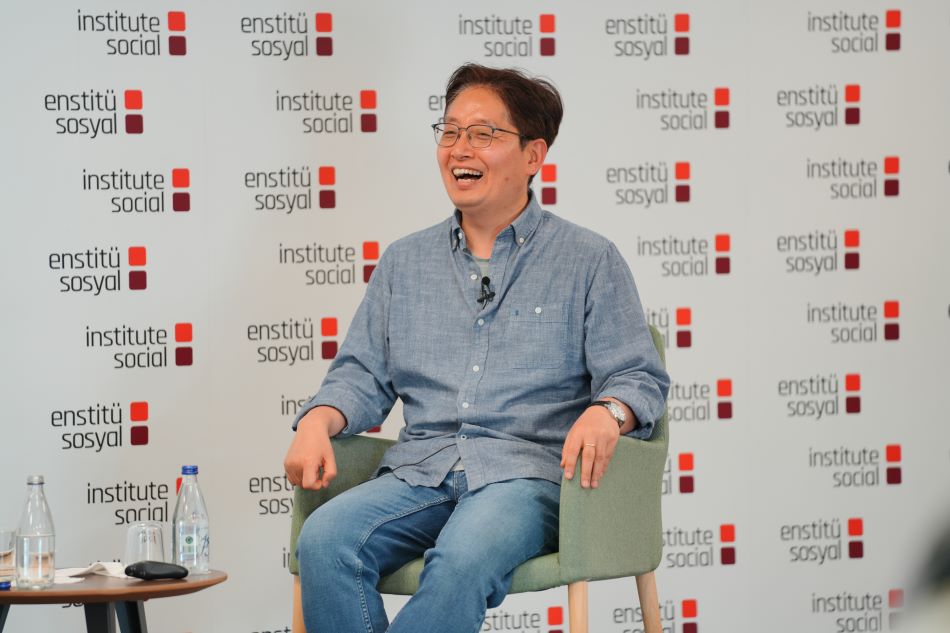
Prof. Sunghwan Yi on “Excessive Buying and Pathological Buying Addiction: Recent Issues in Research”
In the latest event of its Reflections from the World series held on May 5, Institute Social hosted Professor Sunghwan Yi from the University of Guelph, known for his work on “automatic determinants of addictive, impulsive and compulsive consumer behaviour and the “affective motives of engaging in excessive consumption behaviour”. In a talk titled Compulsive Buying and Pathological Shopping Addiction: Current Debates, Prof. Yi offered an in-depth discussion of the psychological and cultural dimensions of these behaviors and shared recent findings from new research in the field.
Prof. Yi emphasized that compulsive buying is not merely a “shopping problem,” but a multifaceted phenomenon intertwined with issues such as trait self-control, emotional regulation, and social belonging. Presenting examples from his research, he noted that individuals with compulsive buying tendencies often display low levels of self-control and more impulsive personality traits.
Yi explained that while purchasing may lead to a temporary boost in self-esteem for some individuals, this feeling quickly fades and gives way to a new wave of dissatisfaction. He stated that this cycle often results in recurring feelings of guilt and shame. “Individuals who do not feel in control of their shopping behaviors struggle to stop and experience inner conflict,” said Yi, highlighting the serious effects this can have on mental health.
Similarly, Yi discussed how compulsive buying can be linked to efforts to reestablish one’s social status. “Some people say they feel equal to others when they shop. It gives them a short-term boost in self-esteem, but it quickly dissipates,” he added.
The presentation also addressed excessive consumption behaviors shaped not only by economic motives but also by emotional ones. “If you buy something on impulse and actually use it, that’s not considered compulsive,” said Yi. “But most compulsive buyers rarely use what they purchase—sometimes they even store it away at home,” he explained, outlining the distinguishing features of compulsive behavior.
The event, which drew significant interest from participants, also opened the floor to questions such as how individual behaviors are shaped within the broader context of consumer culture, and whether shopping is a form of escape or a coping mechanism. Prof. Yi concluded by emphasizing that such behaviors should not be seen as merely individual issues, but also as cultural and systemic matters, underlining the need to examine emotions and control mechanisms more closely in the age of overconsumption.
